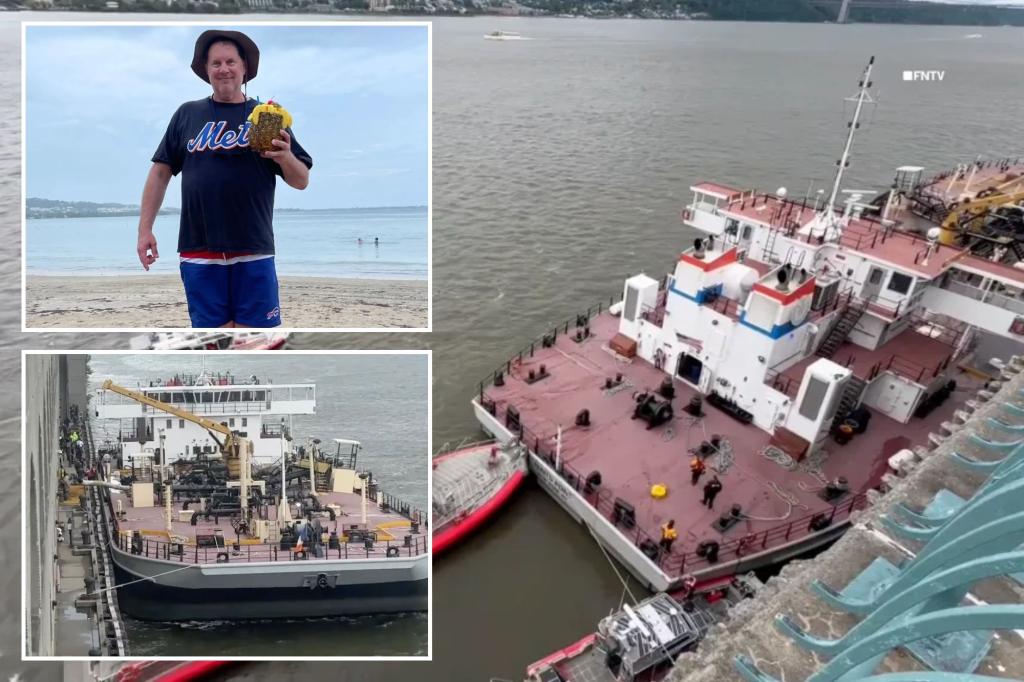Tragic Explosion: How a Welding Mishap Led to a Fatal Methane Blast on NYC Sewage Boat
A catastrophic explosion aboard a sewage boat in New York City has raised significant safety concerns, following the tragic loss of life triggered by a suspected welding accident that ignited a methane blast. The incident, which occurred on October 15, 2023, has led investigators to scrutinize the protocols surrounding urban infrastructure maintenance and the inherent risks associated with such operations.
The Incident: What Happened?
On the fateful day, a team of maintenance workers was performing routine repairs on the sewage vessel, the NYC Sanitation Vessel 3, when a spark from welding equipment ignited methane gas that had accumulated in the vessel’s hold. Eyewitnesses reported hearing a thunderous explosion that rocked the boat, leading to chaos and immediate evacuations.
Emergency services responded swiftly, but tragically, one engineer lost his life, and several others sustained serious injuries. The incident has prompted a thorough investigation by the New York City Department of Environmental Protection (DEP) and other regulatory bodies.
Understanding Methane Risks in Sewage Maintenance
Methane is a common byproduct of sewage treatment processes. It is highly flammable and can accumulate in confined spaces, creating a dangerous environment for workers. According to the Environmental Protection Agency (EPA), methane emissions from wastewater treatment facilities can pose serious safety risks if not properly managed.
- Flammability: Methane is colorless and odorless, making it difficult to detect without specialized equipment.
- Explosion Risks: Accumulation of methane can lead to explosive atmospheres, particularly in enclosed areas.
- Regulatory Oversight: There are specific guidelines set forth by OSHA (Occupational Safety and Health Administration) regarding the safe handling of flammable gases.
Investigative Insights: What Went Wrong?
Investigators are delving into the specifics of the welding procedure employed on that day. Preliminary reports indicate that standard safety protocols may not have been adequately followed. Key areas of concern include:
- Lack of Proper Ventilation: Investigators are examining whether adequate measures were in place to ventilate and monitor methane levels during the welding process.
- Inadequate Training: Questions have arisen regarding the training of personnel in recognizing hazardous conditions associated with methane.
- Safety Equipment: The availability and functionality of gas detection systems on board are also under scrutiny.
The Broader Implications for Urban Infrastructure
This tragic incident raises broader questions about safety standards in urban infrastructure maintenance. The New York City sewage system, which serves over 8 million residents, is crucial to public health and safety. Ensuring the safety of workers who maintain this infrastructure is paramount.
Experts argue that this event should serve as a wake-up call for cities across the nation. Dr. Emily Carter, an urban safety consultant, stated, “Incidents like this highlight the need for stricter safety regulations and enhanced training for workers in potentially hazardous environments.”
Future Outlook: Ensuring Safety in Urban Maintenance
In the aftermath of this tragedy, there is an urgent need for a comprehensive review of safety practices in urban maintenance operations. Recommendations include:
- Enhanced Training Programs: Implementing regular training sessions focused on the dangers of flammable gases and emergency response protocols.
- Regular Safety Audits: Conducting frequent inspections of equipment and procedures to ensure compliance with safety standards.
- Improved Communication: Establishing clear lines of communication between management and workers regarding safety concerns and incident reporting.
A Call to Action
The tragic explosion aboard the NYC Sanitation Vessel 3 serves as a stark reminder of the risks faced by those who work to maintain essential urban infrastructure. As investigations continue, it is imperative for city officials, regulatory bodies, and the public to advocate for improved safety measures to prevent future tragedies.
To prioritize the safety of workers and the integrity of our urban systems, we must engage in meaningful dialogue about safety protocols and accountability. Together, we can work towards a safer future for all who serve our communities.
See more CNN Headline


